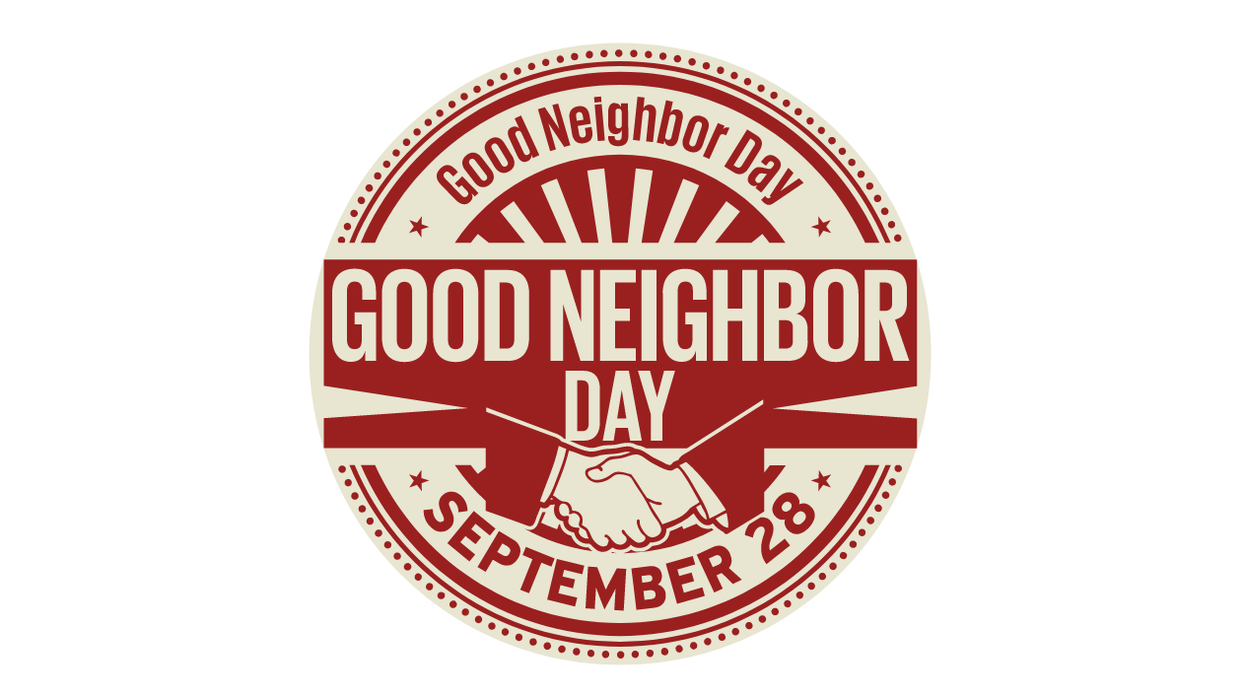Becvar is co-publisher of The Fulcrum and executive director of the Bridge Alliance Education Fund.
National Good Neighbor Day is coming up on Sept. 28, bringing an opportunity to chat, share a meal, or offer help and support to a needy neighbor. It's also a perfect opportunity to remember that acknowledging our connections to neighbors impacts the broader health of our communities and our democracy.
Polarization and division dominate the political landscape, especially leading up to a bitter presidential election, and building solid connections with our neighbors is now more than just a nicety; it is a vital part of restoring the health of democracy in the United States.
There are hundreds, even thousands, of observances in the U.S., like National Doughnut Day or even April Fool's Day. National Good Neighbor Day is an actual holiday, not just an unofficial observance. It has origins in Montana and, in 1978, Jimmy Carter issued Proclamation 4601:
"As our Nation struggles to build friendship among the peoples of this world, we are mindful that the noblest human concern is concern for others. Understanding, love and respect build cohesive families and communities. The same bonds cement our Nation and the nations of the world. For most of us, this sense of community is nurtured and expressed in our neighborhoods where we give each other an opportunity to share and feel part of a larger family…I call upon the people of the United States and interested groups and organizations to observe such day with appropriate ceremonies and activities."
Improving our relationships with our neighbors is closely tied to the work being done in the healthy democracy ecosystem in the United States. Fostering positive relationships between individuals is fundamental to building strong communities, which are the core of a healthy democratic society.
A thriving democracy is built on the foundation of solid and interconnected communities. The simple act of being a good neighbor fosters the social cohesion that democracy requires to function. When neighbors know and care for one another, it creates an environment where dialogue, empathy, and collaboration can flourish — three essential ingredients for democratic engagement.
The hardest part of being a good neighbor is also the most essential. Building relationships with those with different political or ideological views creates spaces where dialogue and mutual respect can occur. These interactions at the local level can help bridge divides that seem impossible to close on the national stage by engaging with those around us with a level of trust. Trust is the glue that holds a democracy together. Without trust — both in each other and in our institutions — democratic systems cannot function effectively. Trust in American democracy has been eroding for years, fueled by political divisions, misinformation and a sense of alienation among many citizens.
Building trust is also at the heart of being a good neighbor. When neighbors support one another and engage in open, respectful communication, they foster trust within their communities and broader social structures. This trust can extend beyond the neighborhood to reinforce people's confidence in democratic institutions like local governments, schools and even national leadership.
Good neighborliness also helps counter the rise of isolation and mistrust that often leads to disillusionment with democracy. When individuals feel connected to their community and believe they are part of a collective effort to improve it, they are more likely to engage in democratic processes, such as voting, attending town hall meetings or advocating for local policies.
These local connections become even more critical in the current climate of deep political polarization. They remind us that, despite our differences, we share common values and concerns as members of the same community. Whether it's ensuring our children have safe places to play or advocating for clean and accessible public spaces, countless issues unite us at the local level, regardless of political affiliation. These shared interests can be a starting point for broader democratic engagement and problem-solving.
As Sept. 28 approaches, remember that being a good neighbor is more than just an act of kindness — it's an act of democracy. By investing in our local communities and nurturing our relationships with those around us, we are investing in the future of our democratic society.




















Trump & Hegseth gave Mark Kelly a huge 2028 gift